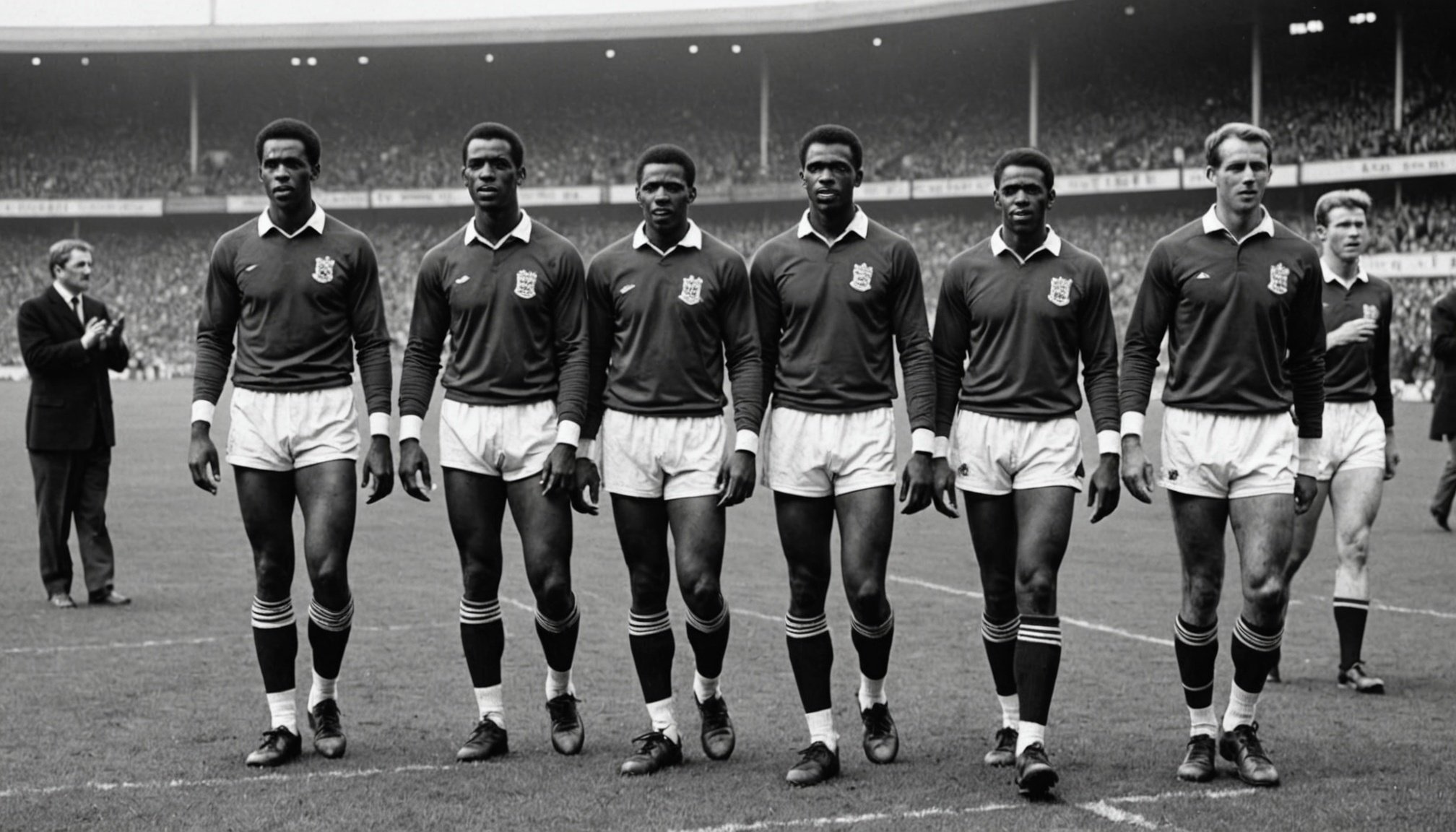The Historical Emergence and Transformation of UK Sports
The history of UK sports reveals a rich tapestry, marked by centuries of evolution and cultural significance. From medieval jousting tournaments to the codification of modern football in the 19th century, the sports timeline UK showcases landmarks that have shaped global athletics. Traditional British sports like cricket, rugby, and football each trace their origins back to distinct periods but have all undergone significant development to become the popular games known today.
Industrialisation and urbanisation played pivotal roles in the sports development UK experienced during the 18th and 19th centuries. As cities expanded, working-class populations gained limited leisure time, prompting the rise of organized sports clubs and public competitions. This shift made sports more accessible and formalized, leading to standardized rules and national leagues.
This might interest you : How Can the Latest UK Sport News Impact Your Daily Fitness Routine?
The timeline of UK sports also highlights key moments such as the establishment of the Football Association in 1863, which standardized rules for football, and the rise of professional cricket. These milestones reflect how British society’s changing structure influenced the popularity and organization of sports, embedding them as enduring elements of UK culture and identity.
Societal and Cultural Drivers of Change in UK Sports
Exploring how sports reflect and influence British society
In the same genre : How Are Emerging Technologies Revolutionizing Training and Performance in UK Sports?
Sports in the UK have long played a crucial role in shaping class identity, acting as a mirror for social divisions and mobility. Traditionally, certain sports were linked to specific classes—for example, cricket and rugby union were often associated with the middle and upper classes, while football was seen as a working-class pastime. Over time, this dynamic has evolved, reflecting broader cultural change UK, where increasing access to varied sports has blurred rigid class distinctions.
Another significant shift involves gender participation and representation. Women’s sports have experienced substantial growth, challenging historical exclusion and stereotypes. This change not only promotes inclusivity but also fosters equality, encouraging diverse representation across national competitions and grassroots levels. The rise of women’s football, for instance, signals this ongoing transformation within UK sport and society.
Immigration has had a profound effect by enriching the diversity of athletes and fans, leading to wider acceptance of multicultural influences in UK sports. This has expanded the social impact of sports UK by breaking down racial barriers and promoting cohesion. Diverse communities bring new talents and traditions, making British sports more representative of the population’s rich cultural fabric.
Together, these elements highlight how sports are not merely games but pivotal social institutions reflecting and driving cultural evolution.
Technology, Media, and the Modernisation of UK Sports
Technological advancements have profoundly changed the landscape of technology in UK sports. Innovations like instant replays, wearable performance trackers, and advanced analytics have enhanced both athlete training and fan engagement. These tools offer precise data, allowing players to optimize their performance while providing broadcasters new ways to present the game, increasing viewer immersion.
The media influence UK sports is equally significant. Television and digital streaming platforms have transformed how audiences consume sports, making events accessible on demand and in high definition. Media coverage fuels fan enthusiasm, turning niche sports into household names and shaping public perception. Commentators and social media contribute narratives, elevating athletes to celebrity status and broadening sports culture.
Further, economic changes driven by these technological and media shifts have accelerated the modern sports UK scene towards professionalisation. Sponsorship deals, advertising revenues, and global broadcasting rights now fund clubs and leagues at unprecedented levels. This professionalisation improves infrastructure, attracts talent, and raises competition standards.
In summary, technology and media synergize to modernise UK sports, making them more dynamic, accessible, and commercially viable than ever before. For a deeper dive into how digital innovations impact sports, see the dedicated sports technology analysis.
Case Studies: Sports as Mirrors of UK Cultural Shifts
Examining case studies in UK sports reveals vivid examples of how athletic arenas reflect deeper social changes. Sports history examples like football, cricket, and rugby don’t merely entertain—they document shifts in identity, class, and culture across decades.
Football’s transformation illustrates changing class dynamics powerfully. Once predominantly a working-class pastime, football’s rise to mainstream popularity reflects broader societal shifts towards inclusivity and commercialization, reshaping UK sports and culture. Stadiums evolved from local community hubs to modern arenas, mirroring urban regeneration and changing lifestyles.
Women’s access and achievement in competitive sports mark another crucial cultural shift. Historically marginalized, female athletes now break barriers and define new success standards. This progress challenges traditional gender roles within UK sports and culture, empowering diverse participation and fostering equality.
Cricket exemplifies the complex interplay of national identity and post-imperial history. As a sport intertwined with colonial history, cricket traces the UK’s evolving self-perception and multicultural integration, demonstrating how sports history examples can also narrate political and social transformation.
These case studies in UK sports show how athletic disciplines act as mirrors, reflecting the evolving values, struggles, and triumphs of British society over time.
Insights and Lessons: What UK Sports Evolution Reveals About Broader Cultural Shifts
Sports have long served as mirrors reflecting societal values in the UK, offering a unique lens on cultural evolution. The changes seen in UK sports reveal much about broader societal priorities, including inclusivity, fairness, and the celebration of diversity. Over time, traditional norms embedded within sports have both reinforced and challenged cultural expectations, prompting conversations about identity, gender roles, and community cohesion.
For example, the growing prominence of women’s football and the embrace of adaptive sports highlight how UK sports embrace progressive values and inclusion. These developments signal a shift away from rigid stereotypes and towards greater equality. Furthermore, sports often act as a catalyst for social unity, bringing together diverse populations, yet they also expose inequalities that persist in society.
Looking ahead, the ongoing evolution in UK sports is likely to reflect changing societal dynamics such as technological integration, mental health awareness, and environmental consciousness. This continual transformation shows that sports are not static pastimes but evolving platforms for cultural expression, making them invaluable in understanding the trajectory of UK society as a whole.





